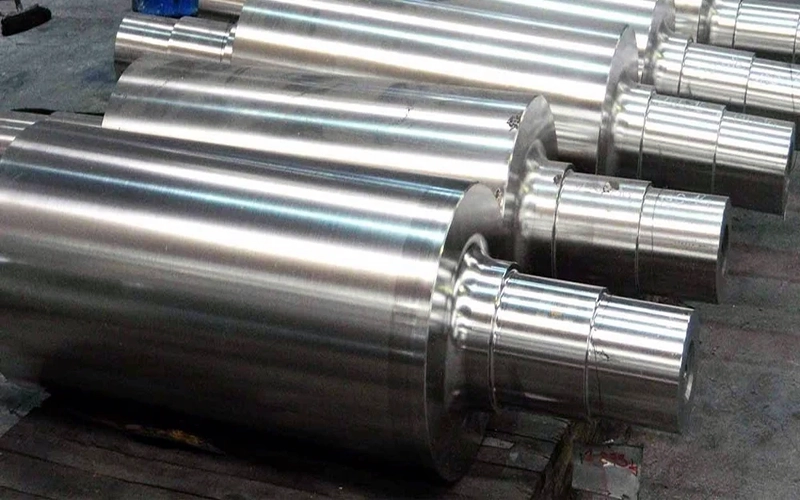Forged rolls are critical components used in rolling mills, designed for processing a wide variety of materials including steel, aluminum, copper, and other alloys. These rolls are manufactured through the forging process, which involves the shaping of heated metal using compressive force. The forging method significantly enhances the mechanical properties of the rolls by refining the grain structure, reducing internal voids, and improving strength and wear resistance.
The primary application of forged rolls is in the rolling process, where they are employed to reduce the thickness or change the cross-sectional area of metal stock. This is done by passing the metal between two rotating rolls that exert high pressure. Forged rolls are particularly used in hot rolling and cold rolling mills, each requiring different material compositions and properties depending on operating temperatures and rolling pressures.
Forged rolls are preferred over cast rolls in demanding applications because they offer better fatigue resistance, toughness, and a longer operational lifespan. They are also less prone to cracking and spalling, which makes them suitable for use in high-load and high-temperature environments. Their high strength ensures consistent dimensional accuracy during the rolling process, which is vital in producing high-quality finished products.
Materials used for manufacturing forged rolls typically include carbon steel, alloy steel, and tool steel, depending on the specific rolling requirements. High-chromium steel and other alloying elements such as nickel, molybdenum, and vanadium may be added to enhance wear resistance, hardness, and thermal stability. Each roll type is engineered to meet specific metallurgical and mechanical property standards, including hardness, tensile strength, impact toughness, and microstructural uniformity.
The production process involves several key steps, including ingot selection, heating, forging, rough machining, heat treatment, finish machining, and quality inspection. Heat treatment processes such as quenching and tempering are critical to achieving the required hardness and strength. After machining, non-destructive testing methods like ultrasonic and magnetic particle inspection are employed to ensure structural integrity and dimensional precision.

Forged rolls come in various types, such as work rolls, backup rolls, intermediate rolls, and edger rolls, each serving a specific role in the rolling mill operation. Work rolls are directly in contact with the metal being rolled, while backup rolls provide support to prevent deflection.
Due to their durability, high load-bearing capacity, and superior surface quality, forged rolls are widely used in industries such as automotive, construction, aerospace, and heavy machinery. Their reliability directly affects production efficiency, product quality, and overall mill performance. As rolling technology advances, the demand for high-performance forged rolls continues to grow globally.
Forged rolls are essential in hot and cold rolling mills for shaping steel, aluminium, and other metals. They are used in automotive, construction, and heavy industry applications due to their high strength, wear resistance, and durability, ensuring consistent product quality and efficient metal forming in demanding production environments.

| Grade | C (%) | Mn (%) | Si (%) | S (%) | P (%) | Cr (%) | Ni (%) | Mo (%) |
|---|---|---|---|---|---|---|---|---|
| EN‑8 | 0.35–0.45 | 0.60–1.00 | 0.10–0.35 | ≤ 0.02 | ≤ 0.02 | – | – | – |
| EN‑9 | 0.50–0.60 | 0.50–0.80 | 0.05–0.35 | ≤ 0.02 | ≤ 0.02 | – | – | – |
| EN‑42 | 0.70–0.85 | 0.55–0.75 | 0.10–0.40 | ≤ 0.02 | ≤ 0.02 | – | – | – |
| EN‑31 | 0.90–1.20 | 0.30–0.75 | 0.10–0.35 | ≤ 0.02 | ≤ 0.02 | 1.0–1.6 | – | – |